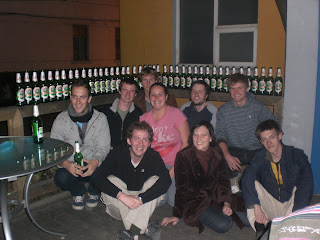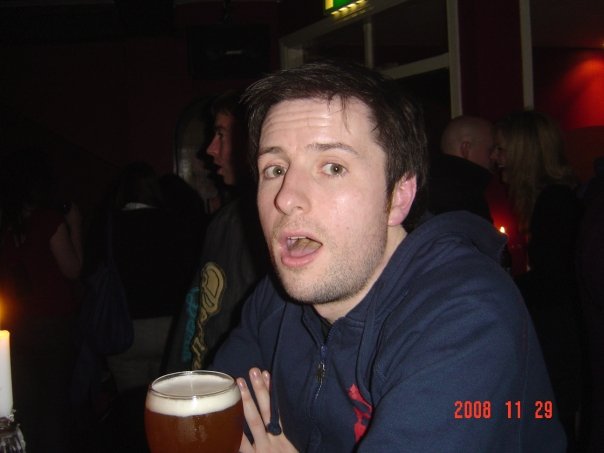
Happy Valley Racecourse was the most impressive of the sights seen in those first two days. Not for the racecourse itself, which is pretty standard as far as racecourses go (not that I’m any kind of expert on racecourse design), but for it’s location. On the side of the hill where a large proportion of the city’s buildings reside, it’s completely surrounded by skyscrapers. From the outside you wouldn’t know it was there. Inside the grounds I noticed a picture of the racecourse as it looked when it was recently built in the 19th century. With featureless hillside grassland surrounding it, I got an idea of the incredible changes that have happened to the landscape on this little island, from a few small fishing villages to metropolitan behemoth during 155 years of British rule.

As impressive as the skyscrapers are during the day, at night the city is transformed. The famous Hong Kong skyline known worldwide is located on Hong Kong Island, where we were also based, meaning we were unable to get the panoramic view. It wasn’t until our fourth day here, when we traversed the bay to Kowloon on the mainland (which is still part of Hong Kong territory), that we were able to see it with out own eyes. I can still remember the spine-tingling moment - it’s such an impressive sight that I won’t say any more about it, except to go and see it for yourself if you get the opportunity.

The previous day, while Gearoid was busy sorting out his transport to Shanghai, John and I were busy seeing other parts of the territory. By my reckoning, Hong Kong has more escalators than any other part of the world, and seeing that a lot of the city is located on the side of a hill, the world’s longest escalator was built so that people wouldn’t have to work up a sweat going to work. It takes a good 20-25 minutes from bottom to top, and it works quite well. If only they had built a slide to go back down.

Gladly they hadn’t built an escalator all the way up to Victoria Peak, but they had built the Peak Tram Line, which was also an experience in itself. It’s a tram that travels straight as an arrow up to the peak, with the journey steep enough to warrant carriages with specially angled seats so that you sit level while the rest of the tram is at a steep angle.

The view from the top wasn’t bad either.














































